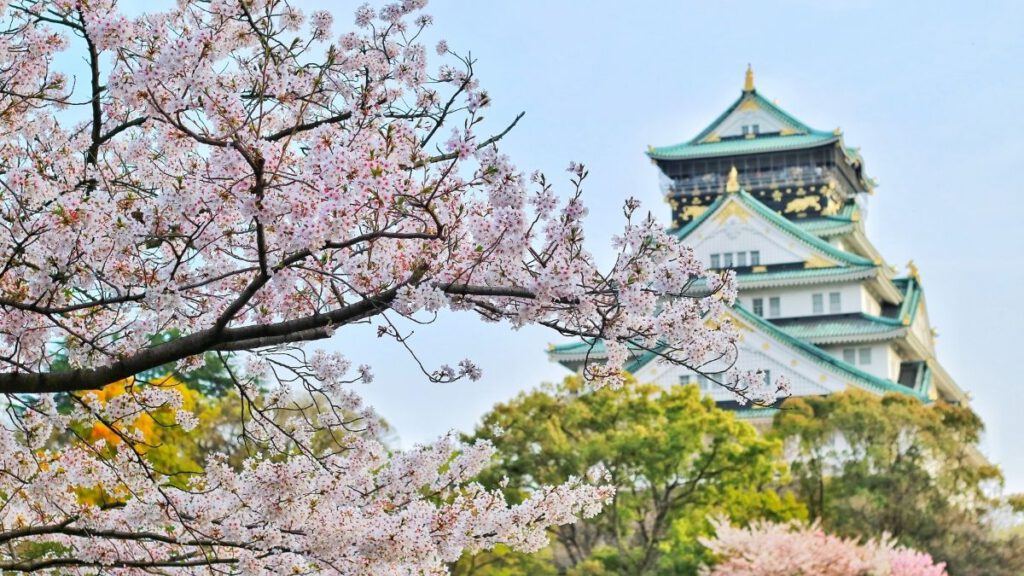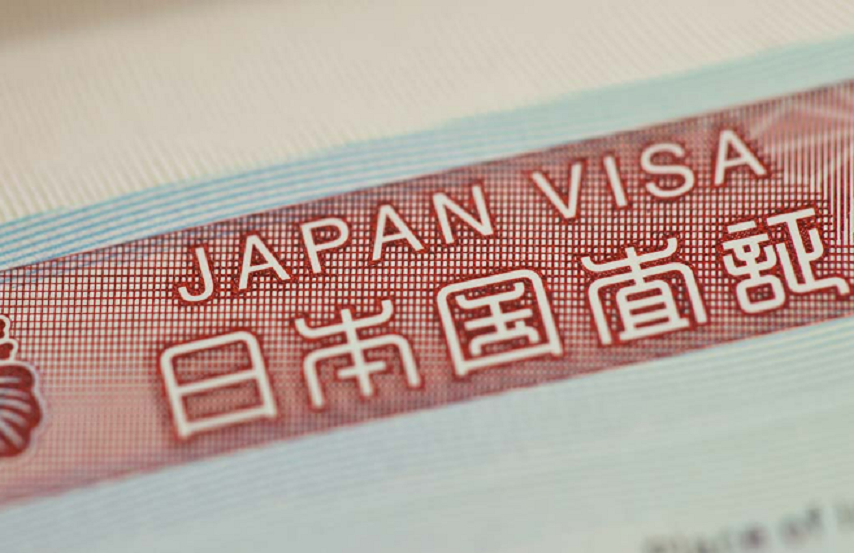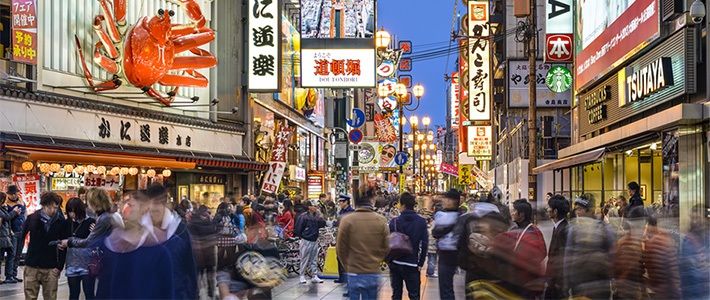Japan is a popular tourist destination known for its unique culture, delicious food, and beautiful natural landscapes. There are many things to see and do in Japan, including visiting temples and shrines, exploring ancient cities, and experiencing the country’s futuristic technology.
Table of Contents
- JAPAN TOURIST VISA GUIDE & PROCESS PHILIPPINES
- JAPAN VISA REQUIREMENTS PHILIPPINES
- 1. PASSPORT
- 2. PASSPORT-SIZE PHOTO
- 3. PSA BIRTH CERTIFICATE
- 4. COMPLETE JAPAN VISA FORM
- 5. PSA MARRIAGE CERTIFICATE
- 6. ITINERARY
- 7. PROOF OF FINANCIAL MEANS
- MORE INFO FOR VISA REQUIREMENTS:
- JAPAN VISA FAQ:
- 1. What types of visas are available for Japan?
- 2. How long does it take to process a Japanese visa application?
- 3. Can I apply for a Japanese visa online?
- 4. How long is a Japanese visa valid for?
- 5. Can I extend my stay in Japan on a tourist visa?
- 6. How much does a Japanese visa cost for Philippine citizens?
- 7. Do I need to provide a sponsor letter for a Japanese visa from the Philippines?
- 8. Can I work on a Japanese tourist visa from the Philippines?
- 9. How can I check the status of my Japanese visa application from the Philippines?
- 10. Can I apply for a Japanese visa at the airport in the Philippines?
- JAPANESE VISA INTERVIEW FAQ
- DONTS IN JAPAN TOURIST VISA INTERVIEW
- A MUST VISIT COUNTRY: JAPAN
JAPAN TOURIST VISA GUIDE & PROCESS PHILIPPINES

If you are a citizen of the Philippines and you want to visit Japan as a tourist, you will need to apply for a Japanese tourist visa. Here is a general Japan Tourist Visa guide to the process for obtaining a Japanese tourist visa for citizens of the Philippines:
[adToAppearHere]
Determine the type of visa you need: There are several types of Japanese visas, including single-entry visas, multiple-entry visas, and transit visas. Determine which type of visa you need based on the purpose and duration of your trip.
Gather required documents: You will need to provide certain documents as part of your visa application. These may include your passport, a passport-sized photo, a completed visa application form, and proof of financial means.
Submit your application: Submit your application, along with all required documents, to the Japanese embassy or consulate in the Philippines. You may need to pay a visa processing fee at this time.
Wait for a decision: The embassy or consulate will review your application and make a decision on your visa. This process can take several weeks, so it is important to apply well in advance of your planned trip.
If your visa is approved: If your visa is approved, you will receive your visa by mail. Make sure to double-check the expiration date and the number of allowed entries on your visa.
It is important to carefully review the specific Japan tOURIST visa requirements for Japan and to submit all required documentation when applying for a tourist visa. If you have any specific questions about the visa process, please let me know and I will do my best to help.
JAPAN VISA REQUIREMENTS PHILIPPINES
To enter Japan as a tourist, you may need to apply for a japan tourist visa. The process for obtaining a tourist visa to Japan can vary depending on your country of citizenship and the length of your stay. In general, you will need to provide the following documentation when applying for a Japanese tourist visa:
1. PASSPORT
Your passport must be valid for at least six months beyond the end of your planned stay in Japan.
- Validity: Your passport must be valid for at least six months beyond the end of your planned stay in Japan.
- Blank pages: Your passport must have at least two blank pages for the visa stamp.
- Damage: Your passport must not be damaged or altered in any way.
2. PASSPORT-SIZE PHOTO
You will need to submit a recent passport-sized photo with your visa application.
Application form: You will need to fill out an application form and provide personal information such as your name, date of birth, and contact information.
[adToAppearHere]
3. PSA BIRTH CERTIFICATE
A birth certificate from the Philippine Statistics Authority (PSA) may be required as part of the documentation for a Japan tourist visa application from the Philippines. The birth certificate will be used to verify your personal information and ensure that you are eligible for a Japanese visa.
To obtain a birth certificate from the PSA, you will need to visit a PSA service center and provide the following documents:
- An application form: You can obtain an application form at the PSA service center or download it from the PSA website.
- A valid ID: You will need to present a valid government-issued ID, such as a driver’s license or passport.
- Other supporting documents (if applicable): Depending on your specific circumstances, you may need to provide additional documents such as a marriage certificate or an affidavit of late registration.
4. COMPLETE JAPAN VISA FORM
To apply for a Japanese visa, you will need to complete a japan visa application form. This form is used to collect personal and travel information that is needed to process your japan tourist visa application. Here is a general outline of the information that you will need to provide on the Japanese visa form:
- Personal information: You will need to provide your full name, date of birth, gender, and contact information. You will also need to provide your passport number and the expiration date of your passport.
- Travel information: You will need to provide details about your planned trip to Japan, including your travel dates, the purpose of your trip, and your intended activities in Japan.
- Employment information: You will need to provide information about your current employment status and your employer’s contact information.
- Financial information: You may be required to provide information about your financial means, such as bank statements or credit card statements, to show that you have sufficient funds to cover the costs of your trip.
DOWNLOAD JAPAN VISA FORM HERE: VISA FORM
How to Fill Out Japan Visa Application Form
First, a few important reminders.
- Complete the form either by hand or electronically. Either is accepted. If you go the hand-written route, make sure that you write in block letters and that they are readable.
- In fields that don’t apply to you, write NA. Don’t leave any field blank.
- Print the form in an A4-size paper. Other sizes will be rejected.
- Paste a photo on the designated area. PASTE! DO NOT STAPLE! The photo must have been taken within the past 6 months.
- Use a black pen or font. Do not use pencil or one of those erasable pens.
- Avoid erasures! If it can’t be helped, use double line (2 strikethroughs). If there are too many erasures, start over. Never ever use correction tape or liquid.
[adToAppearHere]
Here are a few parts of the form you may be unsure about. To make it easier to understand I filled in the form with big blue fonts to make it clear. When you fill out your form, you should use black.
- Given and middle names: Write both your given name AND your middle name (your mom’s last name).
- Other names: If you have a pen name or nickname or if you’re known by any other name, write it down. If none, write N/A.
- Place of birth: If you have no province and you’re born in Metro Manila, write METRO MANILA. For example, if you were born in Makati, write: Makati, Metro Manila, Philippines.
- Former and/or other nationalities or citizenships: Only if you have one. Write N/A if you have none.
- ID No. issued to you by your government: Any government-issued ID will do. I have tried using UMID. My cousin used Driver’s License. A few times, I wrote the passport number here too, I didn’t have any problem.
- Passport type: Ordinary.
- Passport number: Double check. Make sure it’s correct.
- Place of issue: You can write the city name. In the case of Manila, you can write MANILA. You can also be specific. I usually write DFA NCR EAST, because that’s what’s on my passport.
- Issuing authority: DFA.
- Purpose of visit to Japan: If applying as a tourist, write TOURISM. If you’re visiting a friend or family, write VISIT FRIEND/FAMILY.
- Intended length of stay in Japan: Number of days including the day of arrival.
- Port of entry into Japan: Name of the airport. It can be Kansai, Narita, Chitose, etc.
- Name of ship or airline: Just the name of the airline or the ship. It doesn’t matter if you’re already booked or not. If you’re concerned about funds, write a low-cost carrier like CEBU PACIFIC or JETSTAR.
- Names and addresses of hotels or persons with whom applicant intends to stay: If applying as a tourist, write down the name, address and telephone number of your hotel. If you don’t know the exact address or telephone number of your hotel, Google it! If applying to visit someone in Japan, write their name, address, and contact number.
- Dates and duration of previous stays in Japan. Write N/A if it’s your first time in Japan. If you’ve been to Japan before write the inclusive dates of your previous visits and the number of days. If you’ve been to Japan many times and it won’t fit, use a separate sheet and indicate it on the form.
- Your current residential address: If you have more than one address, list them all on a separate sheet.
- Telephone number: If you don’t have a landline number, write N/A.
- Current profession or occupation and position: Be truthful! If your current occupation or position doesn’t match the ITR you’re submitting (for example, you moved to another company), you can write a letter explaining it.
- Partner’s profession/occupation: If you’re single and of legal age, write N/A. If you’re married, write the profession of your partner. If for a minor, write the profession or occupation of parents.
- Guarantor/Inviter Info: If you’re applying as a tourist and you’re shouldering all expenses, write N/A in ALL of the fields. If you have a guarantor, write their details. If the guarantor is the same as the inviter, write SAME AS ABOVE in the INVITER fields.
- If you answered “Yes” to any of the above questions, please provide relevant details: If you answered NO to all the questions, write N/A.
- Signature: Sign it by hand. I’m not sure if digital signatures are accepted, but I doubt it. If the applicant is minor, a parent or legal guardian can sign, but the relationship must be indicated below the signature.
[adToAppearHere]
5. PSA MARRIAGE CERTIFICATE
In case you are married, you will need to submit a marriage certificate from PSA issued within 1 year. If you never had a Japan Visa before then this is a must to acquire. If you have an expired Japan Visa, there is no need to submit this one. Though you will need to submit your old password with your expired Japan Visa.
6. ITINERARY
You will need to provide a detailed itinerary of your trip, including your travel dates, accommodations, and planned activities.
7. PROOF OF FINANCIAL MEANS
You may need to provide evidence that you have sufficient funds to cover the costs of your trip, such as bank statements or credit card statements.
MORE INFO FOR VISA REQUIREMENTS:
WITH SPONSOR:
If you have a sponsor in Japan, such as a relative or friend, you may be required to submit a sponsor letter along with your Japan tourist visa application. The sponsor letter should include the sponsor’s name, address, and contact information, as well as a statement of responsibility for your expenses during your stay in Japan.
Depending on your specific circumstances, you may also be required to provide additional documentation as part of your Japan tourist visa application. It is important to carefully review the requirements for your specific visa category and to provide all of the necessary documentation to ensure that your application is processed smoothly.
[adToAppearHere]
JAPAN VISA FAQ:
1. What types of visas are available for Japan?
There are various types of visas available for Japan, including tourist visas, business visas, work visas, student visas, and family visas. The type of visa you need will depend on the purpose of your visit and the duration of your stay.

2. How long does it take to process a Japanese visa application?
The processing time for a Japanese visa application can vary depending on the embassy or consulate where you apply and the time of year. In general, it is advisable to submit your application at least two months in advance of your intended travel date to allow sufficient time for processing.
3. Can I apply for a Japanese visa online?
Yes, you can apply for a Japanese visa online through the Ministry of Foreign Affairs of Japan’s visa application portal. Alternatively, you can also apply in person at a Japanese embassy or consulate near you.
4. How long is a Japanese visa valid for?
The validity of a Japanese visa depends on the type of visa and the purpose of your visit. Some japan tourist visas are valid for a single entry, while others allow for multiple entries over a specified period of time. The expiration date of your visa will be indicated on the visa sticker in your passport.
5. Can I extend my stay in Japan on a tourist visa?
In general, it is not possible to extend a tourist visa while you are in Japan. If you wish to stay in Japan longer than the validity period of your japan tourist visa, you will need to apply for a new visa before your current visa expires.
[adToAppearHere]
6. How much does a Japanese visa cost for Philippine citizens?
The visa fee for Philippine citizens varies depending on the type of visa and the duration of your stay. Tourist visas and business visas for stays of up to 15 days are generally free of charge. For longer stays or other types of visas, the visa fee may range from PHP 1,000 to PHP 4,000.
7. Do I need to provide a sponsor letter for a Japanese visa from the Philippines?
A sponsor letter is generally not required for a tourist or business visa for stays of up to 15 days. However, you may be required to provide a sponsor letter if you are applying for a work visa, student visa, or family visa, or if you are staying in Japan for an extended period of time.
8. Can I work on a Japanese tourist visa from the Philippines?
No, a Japanese tourist visa is not intended for employment purposes. If you wish to work in Japan, you will need to apply for a separate work visa.
9. How can I check the status of my Japanese visa application from the Philippines?
You can check the status of your Japanese visa application by contacting the embassy or consulate where you submitted your application. You may also be able to check the status online through the Ministry of Foreign Affairs of Japan’s visa application portal.
10. Can I apply for a Japanese visa at the airport in the Philippines?
No, you will need to apply for a Japanese visa in advance at a Japanese embassy or consulate in the Philippines. It is not possible to apply for a visa upon arrival at the airport in Japan.
JAPANESE VISA INTERVIEW FAQ
During a Japanese visa interview, you may be asked a variety of questions about your background, travel plans, and purpose of visit to Japan. Some sample questions that you may be asked during a Japanese visa interview include:
- Why do you want to visit Japan?
- How long do you plan to stay in Japan?
- What will you do during your stay in Japan?
- Who will you be staying with in Japan?
- Do you have enough funds to support yourself during your stay in Japan?
- Do you have a return ticket or an onward ticket to another destination?
- Do you have any family or friends in Japan?
- Have you visited Japan before?
- Do you have any criminal convictions or outstanding legal issues?
- Do you have a job in your home country?
[adToAppearHere]
It is important to be honest and forthcoming during your visa interview and to provide clear and concise answers to the questions asked. Be prepared to provide documentation, such as a letter of invitation, proof of financial stability, or a letter from your employer, to support your application.
DONTS IN JAPAN TOURIST VISA INTERVIEW
Here are some things to avoid during a Japanese visa interview:
- Lying or making false statements: It is important to be truthful during your visa interview and to provide accurate information about your background and travel plans. Making false statements or presenting fraudulent documents can result in the denial of your visa and could have negative consequences for future immigration matters.
- Being unprepared: Make sure to review the requirements for your visa category and gather all of the necessary documents before your visa interview. Bring copies of all relevant documents, including your passport, visa application form, and photographs, to the interview.
- Being rude or disrespectful: Remember to be courteous and respectful towards the visa officer during your interview. Avoid being confrontational or making inappropriate comments.
- Being too casual: While it is important to be relaxed and comfortable during your interview, it is also important to remember that the visa interview is a formal process. Dress appropriately and avoid using slang or colloquial language.
- Failing to answer questions: Make sure to listen carefully to the questions asked during your interview and provide clear and concise answers. If you do not understand a question, ask for clarification. Failing to answer questions or providing incomplete or vague responses may raise doubts about the authenticity of your application.
[adToAppearHere]
A MUST VISIT COUNTRY: JAPAN

Japan is a must-visit country for a number of reasons. Here are just a few of the many compelling reasons to put Japan on your travel bucket list:
- Unique culture: Japan is home to a rich and unique culture that is unlike any other in the world. From traditional temples and shrines to futuristic cities, Japan offers a wide range of cultural experiences that are sure to leave a lasting impression.
- Delicious food: Japanese cuisine is world-renowned for its delicious and varied flavors. From sushi and ramen to yakiniku and okonomiyaki, there is something for everyone in Japan’s culinary landscape.
- Natural beauty: From the rugged coastline of Hokkaido to the lush forests of Kyoto, Japan is home to some of the most beautiful natural landscapes in the world. The country is also home to many hot springs, or onsen, which offer the perfect opportunity to relax and unwind in nature.
- Advanced technology: Japan is known for its advanced technology and futuristic cities. Whether you’re interested in visiting a cutting-edge robotics laboratory or trying out the latest gadgets, Japan has something for tech enthusiasts of all kinds.
- Hospitable people: The people of Japan are known for their warmth and hospitality. Whether you’re staying with a local family or just chatting with a shopkeeper, you are sure to encounter friendly and helpful people during your trip to Japan.
[adToAppearHere]
Overall, Japan is a truly unique and unforgettable destination that should not be missed. Whether you’re interested in exploring the country’s ancient temples and shrines, savoring its delicious food, or experiencing its advanced technology, Japan has something for everyone.
EXPLORE MORE TRAVEL SUGGESTIONS AND VISA GUIDES:
Exploring our site is a great way to learn more about tourist spots, travel guide and discover all that it has to offer. Our site is packed with useful information and resources that can help you plan your trip, whether you are a seasoned traveler or a newcomer to travelling places in the Philippines or abroad.
Our site is designed to be user-friendly and easy to navigate, so you can easily find what you are looking for. We have organized our content into clear, concise categories, so you can quickly access the information you need.
[adToAppearHere]
